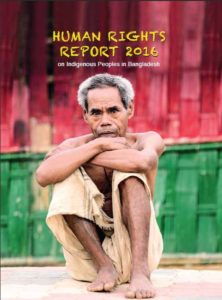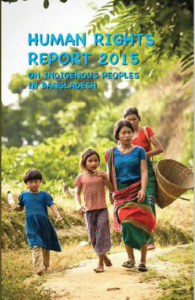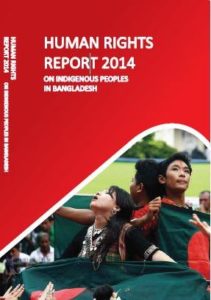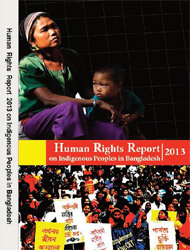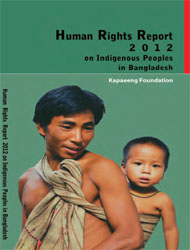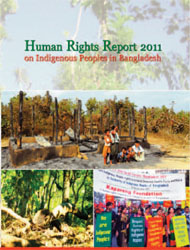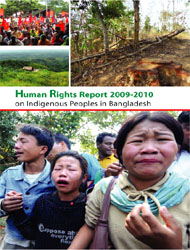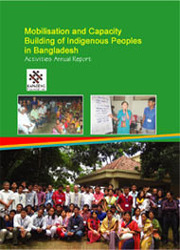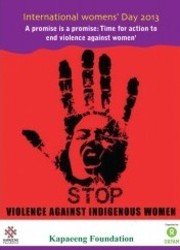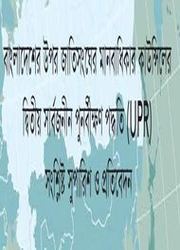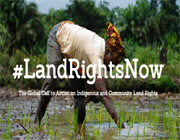Local UP chairman grabs land belonging to indigenous Oraon peoples in Sylhet
On the 18th of February 2014, a small indigenous Oraon community noticed a group of five to ten people on their land, who had brought building materials and begun illegally construction of a house on land belonging to the Oraon community. Immediately after noticing the land grabbers, a member of the Oraon community contacted the Executive Director of ECDO seeking assistance.
ECDO’s response was immediate. The Executive Director reported the incident to local police and the Assistant Commissioner Land (AC Land) through the Upazila Nirbahi Officer (UNO) before relaying information to journalists, civil society members and human rights defenders. Together with the AC Land, a group of local government, NGO and media representatives attended the site of the land grabbing attempt to document the incident and offer support to the victims. The large public display of support towards the Oraon community intimidated the land grabbers, who fled the scene, abandoning their half-built structure. Both local and national media covered the story in depth, and published several reports and photographs.
Following the initial intervention, ECDO organized a meeting with Human Rights Defenders (HRD), who assisted in the writing of a General Diary (GD) which was submitted to the local police station on behalf of the Oraon community as an official record of the incident. A separate memorandum was also submitted to the Commissioner of the Sylhet Metropolitan Police (SMP), which was signed by a range of organizations, civil society members, legal workers and other significant supporters of indigenous rights. An overview of the memorandum was also published in the media.
The lead land grabber was identified as local Union Parisad Chairman, Abdul Mossobbir, who claimed that he had purchased the land years ago, and presented a set of false documents in an attempt to support his claim. In response, ECDO organized a human chain in front of Sylhet central Shahid Minar to protest Mossobbir’s attempt to grab land belonging to the Oraon community in Baluchor, and demanded action to be taken against him. The human chain rallied to the Deputy Commissioner (DC) Office to submit a second memorandum to encourage action against the land grabber. An overview of this second memorandum was also published in the media.
The immediate response from ECDO coupled with the strong support from other networks and media built confidence in the Oraon community, who took the initiative of dismantling the structure that was illegally built on their land.
On the 25th of February 2014, more than 100 people attended a discussion meeting organized by a number of Civil Society organizations and indigenous rights groups at the site of the incident. The accused, Abdul Mossobbir, and his supporters, armed with weapons, intervened the meeting to protest against the claim that they had illegally attempted to occupy the land. In addition, they staged road blocks in a bid to prevent media and other persons to attend the meeting. During the discussion meeting, a committee was formed between Civil Society members to protect and defend the land.
Historically, more than 200 acres of land belonged to the Oraon community, though this has now declined to just three acres as a result of illegal land grabbing. This is the first instance where Oraon people have been able to successfully defend their land against illegal grabbing, and is testament to the positive and important impacts of the Strengthening the Voice of Human Rights Defenders to protect rights and ensure entitlement of indigenous ethnic groups project. Under this project, ECDO trained and developed 25 human rights defenders, provided training to indigenous communities in how to protect their land and maintain the validity of official land documents, and increased general awareness of illegal land grabbing as a critical issue affecting ethnic minorities, all of which assisted ECDO and the Oraon community in defending and protecting their land in the recent incident. Furthermore, the process has strengthened relationships between indigenous communities and mainstream media and support systems, and has increased the number of advocates for indigenous rights.
Reported by: Ethnic Community Development Organization (ECDO)



